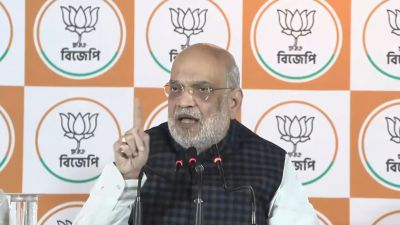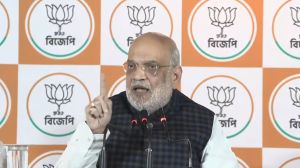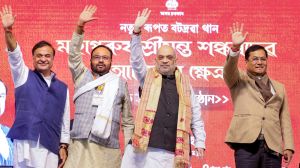Public distress system
The Haryana experiment with smart cards to subsidise the poor makes good sense

The large leakages in the public distribution system found by a Lok Sabha Public Accounts Committee are shocking. More than half the wheat and 40 per cent of the rice issued to states fail to reach the targeted beneficiaries. The food is stolen on the way. Out of 14.07 million tonnes of Food Corporation of India foodgrain, only 5.93 million tonnes reach the targeted families. The highest amount of leakage is in Bihar and Punjab, where over 75 per cent of the foodgrain is siphoned off. In monetary terms, for every rupee that reaches the poor, the Central government spends Rs 3.65. Also, 22 per cent of the BPL below poverty line families who have been issued ration cards cannot be traced. The foodgrain sold by ration is of substandard quality. In spite of all this, CPM General Secretary Prakash Karat recently announced his desire for 8220;a universal PDS, as opposed to a targeted PDS8221;.
The UPA took office with the promise to reform the PDS. A number of 8220;new initiatives8221; to improve the PDS have been proposed in the Eleventh Plan. Each of these has the single goal of tracking the movement of foodgrain more closely. Proposed pilot projects include GPS devices mounted on trucks carrying PDS foodgrain, and gizmos called 8220;radio frequency identification devices8221; to be put in gunny bags carrying PDS wheat or rice. But these policing solutions have failed in the past and will fail again. As the difference in price between foodgrain sold by private vendors and that sold at fair price shops increases, there is bound to be greater leakage and pilferage in the PDS. With the increase in food prices over the last few weeks, it has been reported that PDS rice is often repackaged and sold to private vendors.
The solution to leakages in the PDS is a completely new system that gets rid of the old fair price shop, the FCI, the huge infrastructure of transporting and thereby the criminal nexus that has built up around it. In Budget 2008, Haryana has accepted that challenge to implement a system of smart cards. Under such a system, all shops can sell good quality foodgrain to the poor with the subsidy being received by the shopkeeper from the balance on the card. Even if the identification of BPL families is not perfect, at least the subsidy will not go to thieves, as it does today. The government should make sure that the Haryana experiment is well-designed and implemented and becomes an example for other states. Surely, there is political mileage to be gained from the poor getting affordable food in these days of high food prices.
- 01
- 02
- 03
- 04
- 05































